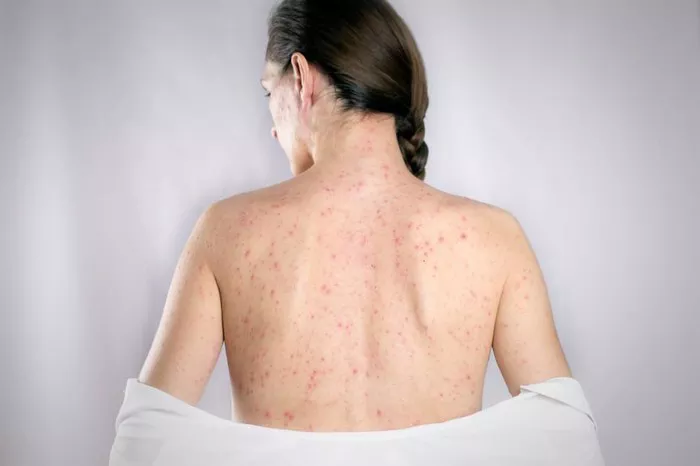Herpes is a common viral infection caused by the herpes simplex virus (HSV), which can manifest as oral herpes (HSV-1) or genital herpes (HSV-2). Shingles, on the other hand, is caused by the reactivation of the varicella-zoster virus (VZV), the same virus that causes chickenpox. Shingrix is a vaccine designed to prevent shingles, but there is often confusion about whether it can also help with herpes outbreaks. This article explores the relationship between Shingrix and herpes outbreaks, providing a clear and comprehensive understanding of their distinct characteristics, treatment options, and the efficacy of Shingrix in this context.
Understanding Herpes Simplex Virus (HSV)
Types and Symptoms
Herpes simplex virus (HSV) has two primary types:
- HSV-1: Commonly associated with oral herpes, causing cold sores or fever blisters around the mouth.
- HSV-2: Primarily causes genital herpes, resulting in sores or lesions in the genital area.
Symptoms of herpes outbreaks include:
- Painful blisters or sores at the infection site
- Itching or burning sensations before the sores appear
- Flu-like symptoms, such as fever and swollen lymph nodes during initial outbreaks
Transmission and Recurrence
HSV is highly contagious and can be transmitted through:
- Direct contact with herpes sores or body fluids
- Asymptomatic shedding, where the virus is present on the skin without visible sores
Once infected, the virus remains dormant in the body’s nerve cells and can reactivate, leading to recurrent outbreaks. Triggers for reactivation include:
- Stress
- Illness
- Sun exposure
- Hormonal changes
Understanding Shingles and Varicella-Zoster Virus (VZV)
Shingles and Its Causes
Shingles, also known as herpes zoster, is caused by the reactivation of the varicella-zoster virus (VZV), which lies dormant in the body after an individual has had chickenpox. Unlike HSV, VZV causes shingles when it reactivates later in life, typically due to weakened immunity.
Symptoms of shingles include:
- Painful rash, usually on one side of the body or face
- Itching, tingling, or burning sensation before the rash appears
- Blisters that scab over in 7-10 days
Complications of Shingles
Shingles can lead to complications such as:
- Postherpetic neuralgia (PHN), causing severe pain that can last for months or years
- Vision loss if shingles affect the eye (ophthalmic shingles)
- Neurological problems if it affects the brain or spinal cord
Shingrix Vaccine: Purpose and Efficacy
Development and Composition
Shingrix is a recombinant zoster vaccine developed to prevent shingles and its complications. It contains a non-live antigen and an adjuvant system to enhance the body’s immune response to the varicella-zoster virus.
Efficacy
Clinical trials have demonstrated the high efficacy of Shingrix:
- Over 90% effective in preventing shingles in adults aged 50 and older
- Significant reduction in the incidence of postherpetic neuralgia (PHN)
- Shingrix and Herpes Simplex Virus (HSV): Clarifying the Misconception
- Distinct Viruses
It’s crucial to understand that HSV and VZV are distinct viruses, despite both being members of the herpesvirus family. Shingrix is specifically designed to target the varicella-zoster virus, not the herpes simplex virus.
Efficacy Against HSV
There is no scientific evidence or clinical data to support the notion that Shingrix can prevent or treat herpes simplex virus (HSV) infections or outbreaks. The vaccine’s mechanism of action and its targeted immune response are specific to the varicella-zoster virus, not HSV.
Current Treatment Options for HSV
Antiviral Medications
The primary treatment for herpes simplex virus (HSV) infections involves antiviral medications such as:
- Acyclovir: Reduces the severity and duration of outbreaks
- Valacyclovir: Similar to acyclovir but with a longer duration of action
- Famciclovir: Another antiviral option with comparable efficacy
These medications can be used during outbreaks to alleviate symptoms and shorten the duration or as suppressive therapy to reduce the frequency of recurrent outbreaks.
SEE ALSO: Is the Cold Sore Virus the Same as Shingles?
Preventative Measures
Preventative strategies for managing HSV include:
- Using condoms during sexual activity to reduce transmission risk
- Avoiding contact with sores or blisters during active outbreaks
- Taking daily antiviral medications for individuals with frequent or severe outbreaks
Research and Future Directions
Vaccine Development for HSV
While Shingrix does not help with herpes simplex virus (HSV) outbreaks, ongoing research is focused on developing vaccines specifically for HSV. Several candidates are in various stages of clinical trials, aiming to prevent initial infection or reduce the severity and frequency of outbreaks.
Immunotherapy and Novel Treatments
Emerging treatments for HSV include:
- Immunotherapy: Boosting the body’s immune response to control the virus
- Gene editing: Techniques like CRISPR to target and eliminate latent viral DNA in nerve cells
- New antiviral drugs: Developing more effective and targeted antiviral agents
Conclusion
In summary, Shingrix is an effective vaccine for preventing shingles and its complications but does not help with herpes simplex virus (HSV) outbreaks. The distinction between VZV and HSV is critical, as they are different viruses requiring different prevention and treatment approaches. Current HSV management relies on antiviral medications and preventive measures, with ongoing research exploring new treatments and potential vaccines. Understanding these differences ensures that individuals receive appropriate care and treatment for their specific viral infections.
Related Topics:

























